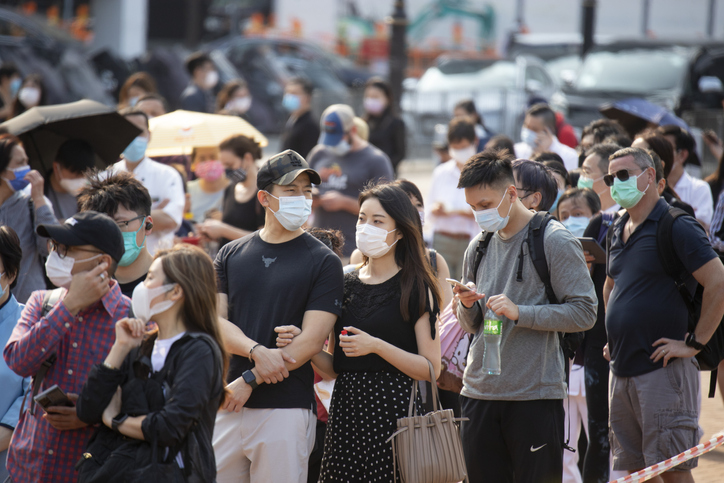
After months of stops and starts, Moderna announced today it seeks emergency use authorization from the Food and Drug Administration (FDA) of a two-dose primary series of its COVID-19 vaccine for children ages 6 months to 6 years.

Led mainly by surges in Asian hot spots, COVID-19 cases last week increased for the second straight week, though deaths continued to fall, the World Health Organization (WHO) said yesterday in its weekly pandemic update.

The World Health Organization (WHO) announced new recommendations yesterday for diagnosing and treating children and young adolescents with tuberculosis (TB), including drug-resistant forms of the disease.

The loss of muscle mass and strength during aging is called sarcopenia. Affecting the elderly population, sarcopenia is a degenerative process that brings about a decrease in wellbeing and increased dependency. A growing number of studies indicate that this form of muscle atrophy is related to chronic inflammation, but when and why does this inflammation occur?

Two studies published yesterday describe the medical consequences of COVID-19 in pregnancy, one finding that the virus may double the risk of severe maternal outcomes and preterm birth, and the other showing that infection can lead to problems with the placenta that may cause fetal loss.

A handful of Asian countries that were hit later by Omicron variant surges are in different phases of their outbreaks, with South Korea seeing a possible peak. In US developments, White House officials—bracing for a possible fresh spike in infections—warned that current funding shortfalls could block the government from buying enough COVID-19 vaccine for fourth doses for the general population.

COVID-19 patients can safely use inexpensive pulse oximeters at home to watch for a drop in blood oxygen that signals they need to seek advanced care, according to a systematic review published yesterday in The Lancet Digital Health.

The Minnesota Department of Natural Resources (DNR) is updating its chronic wasting disease response plan after the discovery of a wild white-tailed deer infected with CWD within the city of Grand Rapids. The response plan update will better reflect a statewide approach to disease surveillance, management, control and education.

A significant number of COVID-19 neurological complications— such as fatigue, headache, and cognitive impairment—are ultimately reversible, according to new research summarized by the Journal of Nuclear Medicine. The comprehensive literature review of molecular imaging findings sheds light on how COVID-19 affects the brain and identifies important implications for other neurological conditions, like Parkinson's disease or Alzheimer's disease.

Dust storms and their impacts on health are becoming a major public health issue. The current study examines the health impacts of dust storms around the world to provide an overview of this issue.







